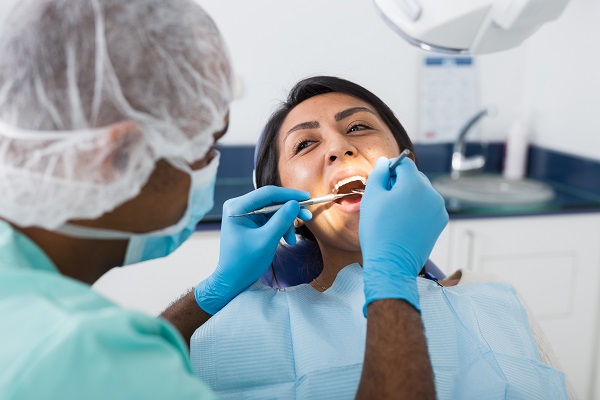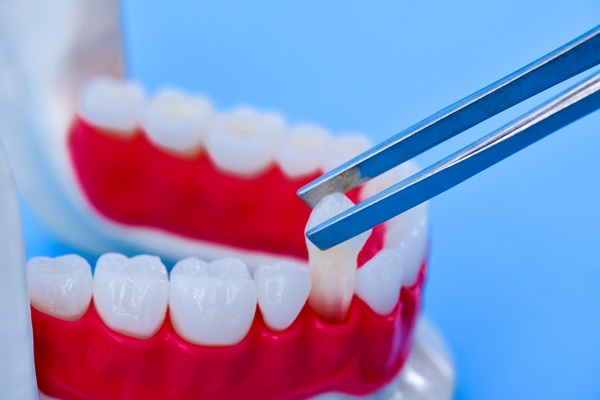Recovering from a Chin Graft

After completing the chin graft surgery, the healing and recovery phase is just as essential to ensure a strong jaw. For the grafting procedure to work, recovery must go smoothly, which means following the oral and facial surgeon's aftercare instructions and taking necessary precautions. This article covers some tips to help patients recover after a chin graft.
Tips for recovery after a chin graft
The following are tips to aid recovery after a chin graft procedure:
Avoid disturbing the grafted area
Patients must avoid putting pressure on the grafted area with their fingers, tongue or any object because the material is still delicate in the initial healing phase. Tampering too much with the surgical area can cause the chin graft material to move, or worse still, dislodge bone particles into the mouth. For the first three to five days, patients must abstain from spitting or rinsing vigorously to allow the blood clot and grafted material to become stable.
It is advisable to rinse a day after the surgery gently and carefully too, else the site might start bleeding if the blood clot is destabilized. It is also recommended to avoid lifting or pulling on the lips to check the sutures. This may cause additional damages to the surgery site and break the sutures.
Avoid smoking and alcohol consumption
Smoking is known to increase the risks of bone graft failure and is generally harmful to oral health. Smoking constricts the blood vessels and inhibits healing. It is better to avoid smoking for at least two weeks after the surgery to allow complete and healthy recovery. Also, alcohol consumption can cause dehydration and has detrimental effects on the oral cavity, which can do damage to the chin graft.
Handling swelling and pain
Swelling and bruising are common after a chin graft procedure, but the symptoms vary depending on the patient. To minimize swelling, patients can apply ice packs over the surgical site. The ice packs should be used intermittently for 20 minutes in the first three days after the surgery.
As with most oral surgeries, chin grafts come with a level of pain or discomfort. The oral surgeon will provide a prescription for pain medications. Patients can use the first pill before the anesthetic dissipates to manage the discomfort better. In some patients, strong pain medications may cause nausea. To avoid this, it is advisable to use pain relievers with food.
Foods
It is better, but not compulsory to restrict meals in the first 24 hours after a chin graft procedure to liquids and soft foods such as yogurt, milkshakes, puddings and soups. Patients must avoid hard foods like nuts, popcorn, chips and sunflower as they may get trapped in the surgical site and open the wound. As much as possible, patients must avoid the use of straws when drinking in the first few days after the chin graft procedure.
Extremely hot foods are not advisable, as well. Proper nourishment will restore strength and boost healing. Diabetic patients can stick to their regular foods or ask for directions from the dentist.
In conclusion
By following the above guidelines, patients will be on their way to complete recovery after a chin graft. If pain, swelling or other symptoms persist for more than a week, contact the oral surgeon as soon as possible.
Request an appointment here: https://spectrumsurgical.net or call Facial Spectrum at (816) 524-4334 for an appointment in our Lee's Summit office.
Check out what others are saying about our services on Yelp: Chin Graft in Lee's Summit, MO.
Recent Posts
A dental implant is considered the gold standard of dental restorations. Titanium rods act as dental roots that stimulate the jawbone. The artificial crowns replace the missing ones above the gumline. These restorations are what you need to have stable, natural-looking teeth again. Here are the details about the role of a dental implant in…
A dental implant is considered the gold standard of dental restorations. Titanium rods act as dental roots that stimulate the jawbone. The artificial crowns replace the missing ones above the gumline. These restorations are what you need to have stable, natural-looking teeth again. Here are the details about the role of a dental implant in…
A regular dentist can refer you to an oral surgeon if you need more dental care. This type of surgeon can perform procedures that can improve the face, mouth, or neck. Understanding the reasons for a referral to this provider can help you prepare for your procedure. Here are the reasons your dentist will refer…
A sinus lift or sinus augmentation can build up your upper jaw. This procedure is invasive. The dentist will take healthy bone and place it in the section of the maxilla that needs it. Here are the sinus lift benefits that you must consider.Studies show that a thinning upper jawbone can result in the weakening…

